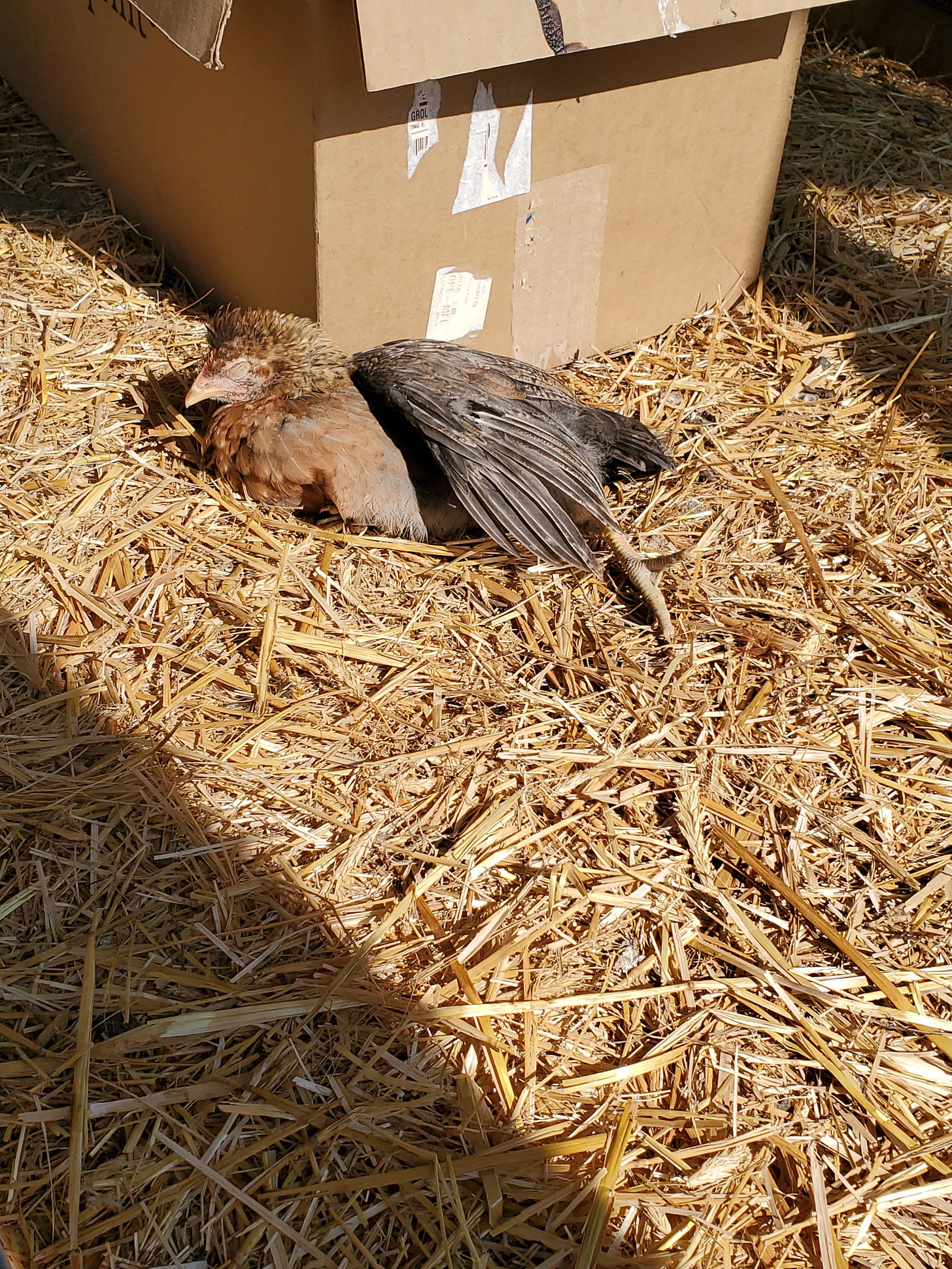My disclaimer
This is based on my experience farming for non-profit endeavors, and from my insights from speaking with other farmers working land that isn’t theirs at the 2023 Sustainable Agriculture Conference in Durham, NC. I didn’t attribute anything to specific people because I honestly can’t remember all their names.
This is by no means a comprehensive look at ALL farming, or at ALL farmers; it’s the insights I’m beginning to sort through, that I’m hoping other farmers can add to.
The Short Answer
Farming someone else’s land is the only real way to learn without jeopardizing your own livelihood, unless you farm alongside some other source of income or are an influencer in the farm/homesteading space. No shade, but unless you have a way of financing your lifestyle outside of the farm, the first big mistake you make could be the end of the farm.
It’s a way to enter into a community, to learn the ropes and see how different businesses make decisions, navigate difficulty, and develop operating procedures. In other words: if you want to farm, I recommend at least entering into a mentorship with an experienced farmer, if not working on a farm that’s not your own.
And, while we’re here at the beginning, what a luxury to even ask the question! I think often about how much parts of the food system in this country rely upon shady business tactics that allow large farm-corporations to barely pay workers, not to even begin speaking on the exploitation of people immigrating to better their situation. It doesn’t happen at every farm, but it happens at enough megafarms that it would become its own entire essay, if not series.
The Longer Answer
It has to be a little heartbreaking, doesn’t it? To pour so much of yourself into something and know that, in the end, it was never yours? Many farmers and ranchers tend the same rented land for years, build good soil and vibrant, diverse ecosystems, have relationships with the landowners and commit to the land and what’s on it.
And many other farmers move from parcel to parcel, often through a combination of choice and necessity: for some, their crop requires rotation, so they can never farm the same parcel two years in a row; for others it could be the rising cost of rent, preference, or other external factors. But ultimately, eventually, they leave.
In the spring of 2023, I prepared the farm I managed for squash and tomatoes, beans and sweet potatoes and melons. Then I prepared myself to leave the state and move over 300 miles away, three-hundred-something miles of coastal plain and scrub and loblolly pine and into the hills of the Piedmont.
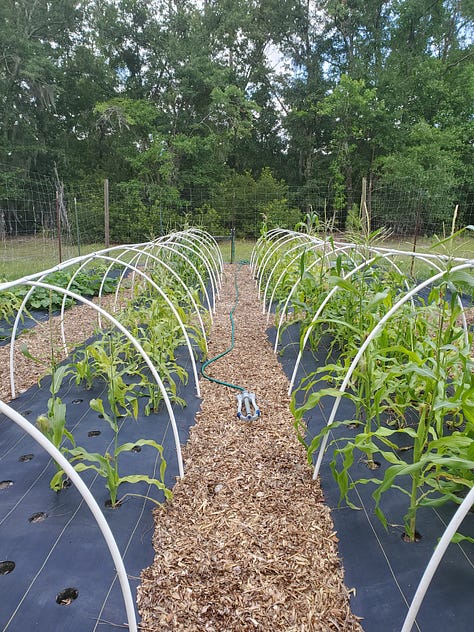


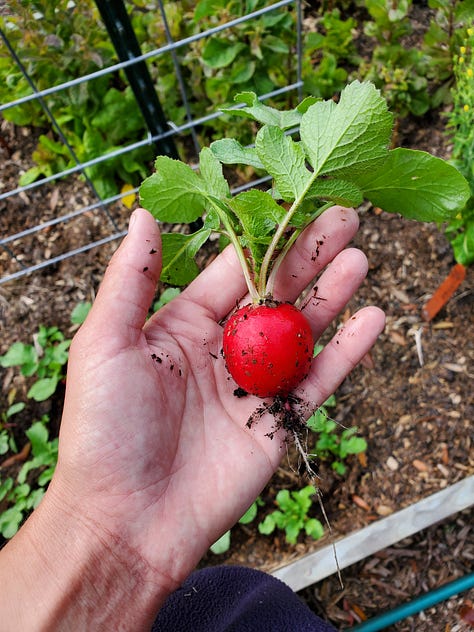

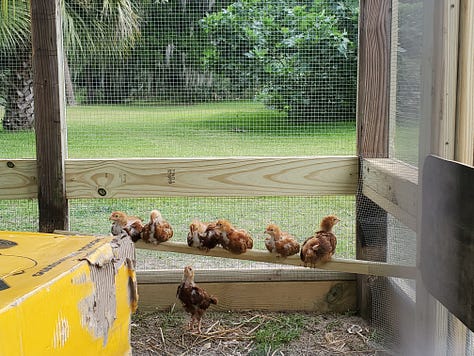
No one could tell me which plants sprouted, or if the tomato plants bore fruit. What happened to the squash seeds I placed in small dirt mounds in the raised beds out among the Longleaf Pines? Were they eaten before they could sprout? Did they grow?
I left, and have no idea what that ground looks like now. But for three years that land and I had an understanding; I felt settled in a way I hadn’t experienced since leaving my childhood home. My skin felt like it fit better, like the sun and I made sense together.
The farm I worked after isn’t mine either, three acres nestled in the middle of other enterprises: the landscaping equipment of a larger team with acres to maintain, a private school whose students reach for ivy-league futures. But for those of us working it, the farm is what matters. How is our soil, and why do the cucumbers keep getting powdery mildew so early?
The Double-Edged Sword of Non-Profit Farming (based on my individual experience)
People love to romanticize farming, exclaim to me how much I must love my job, how nice it must be to be outside, how lovely the weather has been. And, yes, it is deeply fulfilling work. It’s also deeply painful work, physically and emotionally. It sends many people with good thoughts and intentions deeply into debt in the pursuit of some autonomy through owning land. I think sometimes the photos of beautiful sunrises and lush greens mask too well the difficulty.

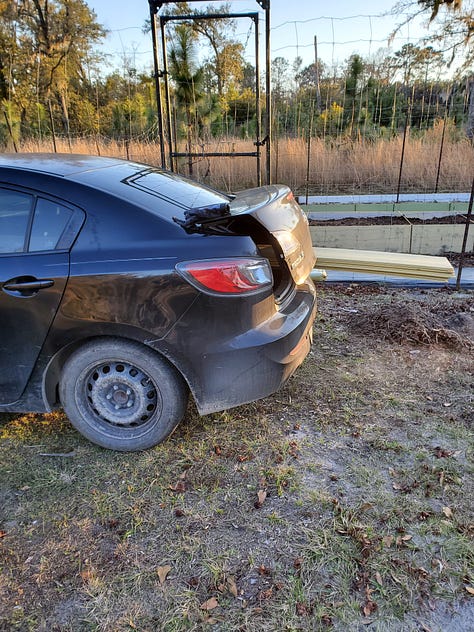

Affiliation with a larger institution removes the urgency of financial viability from farm operations—in plain terms, being associated with a school, organization, or other business means a farm doesn’t have to worry about profit margins. No one is losing their home if these farms fail.
It’s a blessing and a curse, though: in lieu of profit margins there are shareholders, board members, competing visions and interests for what the farm is supposed to be or could become. And where are the farmers in all this? In the field, where we belong. Rarely, at least in my personal experience, are the farmers themselves included in these conversations. Why should they be? It isn’t their property, and often they hold no stake, are merely employees or else contractors of some larger organization. It’s a complicated enough topic to demand its own post.
Farming is difficult: determining how and when to water crops, how to prevent pest damage, deciding which fertilizers and amendments to use, managing morale and long harvests and broken fences and busted irrigation and the endless lists of tasks that aren’t quite urgent enough yet becomes a balancing act. Some days it’s impossible to stay on the tightrope.
It’s hard, of course it is, to tend something so carefully, to dedicate sweat and tears and the burn in your muscles to it, to commend the sunburn and strained muscles to the hopes of a good harvest, and to leave it. Or else to look at it and know at any moment someone else, someone in air conditioning with a smart suit, might change their mind, and change your farm that isn’t yours.
What goes wrong? Why is this so heartbreaking? We’re often taught (in America) to think of land as a commodity, something static we can own and maintain dominion over by simply filing the deed. Land is something living, breathing; an ecosystem won’t answer to someone who just waves a piece of paper at it. Building a farm as a farmer means building a relationship with the land, our most important coworker (or more accurately, our Actual boss).
There is no one Right Way to Farm, for better or worse. Whatever way you slice it (pun intended), farming requires sacrifice: time, energy, possibly connective tissue/tendons/other body parts, money. But there is also long-term development, and I’m curious how many farms that are part of larger entities allow or encourage their farmers to weigh in.
My Untidy Conclusion
I’m looking for a more holistic view of farming; I’m looking for people talking about the business of farming, and the people operating within larger structures (universities, megafarms, non-profit farms). There are places where non-owner farmers have a say, and shape the future of the plots they work, I’m sure.
There is no tidy conclusion to this because, really, I’m trying to think out loud, in a way. Farming is often isolating and so I haven’t had many people to swap notes with. If you know of one, please send them my way!




